Many things in our environment can influence individuals and drive them to create their own “subjective social reality”. This systematic error in thinking, which affects the decisions and judgments many people arrive at, is known as Cognitive Bias. In short, it happens when someone makes a bad decision, which they think is a good choice, because they are lacking useful data.
In order to help you better prioritize some SEO tasks in 2018, or simply change your perception, this week we are starting a series of 6 consecutive blog posts, based on a large set of survey data. We used “Google Surveys” to collect 26,720 answers from Germany, Spain, the United Kingdom and the United States. The surveys were answered by a representative mix of respondents for gender and age for each country.
Day 6: Which voice assistant do you use?
How important is voice search for SEOs today? Take a look at the numbers below: 26% of the respondents are using a voice assistant. Within this group, only 17% of the tasks they use voice search for are SEO related. Voice search is currently not replacing traditional web search but rather expanding the use of search engines.
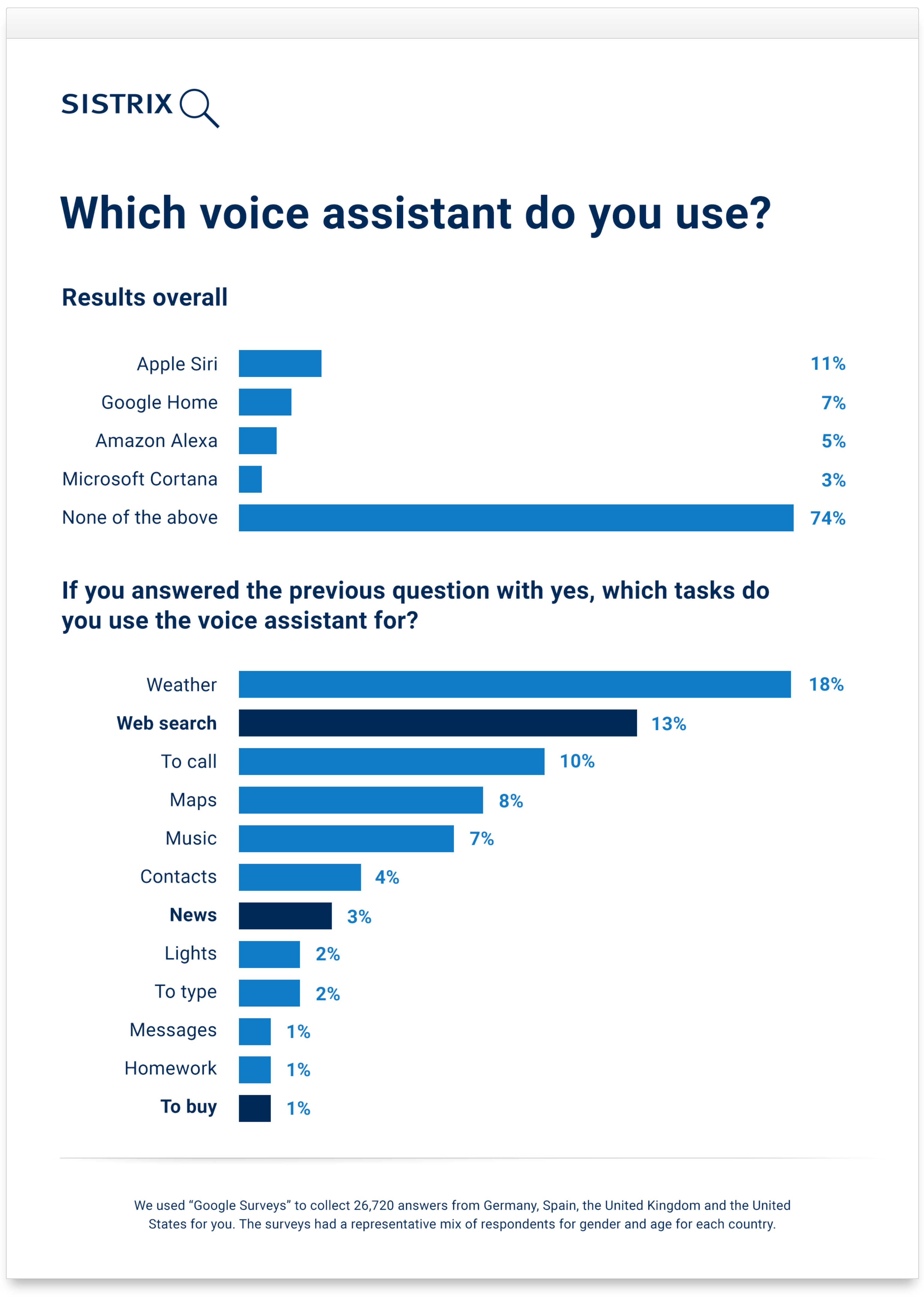
Day 5: Which Google products do you use regularly?
For today’s question we gave our participants 5 multiple choice answers and they could select as many answers as fit. We wanted to know which of the different services that Google has in store are being used on a regular basis?
The interesting, though in retrospective predictable, part is how Youtube takes the lead for the younger age group of 18 – 24 year olds.
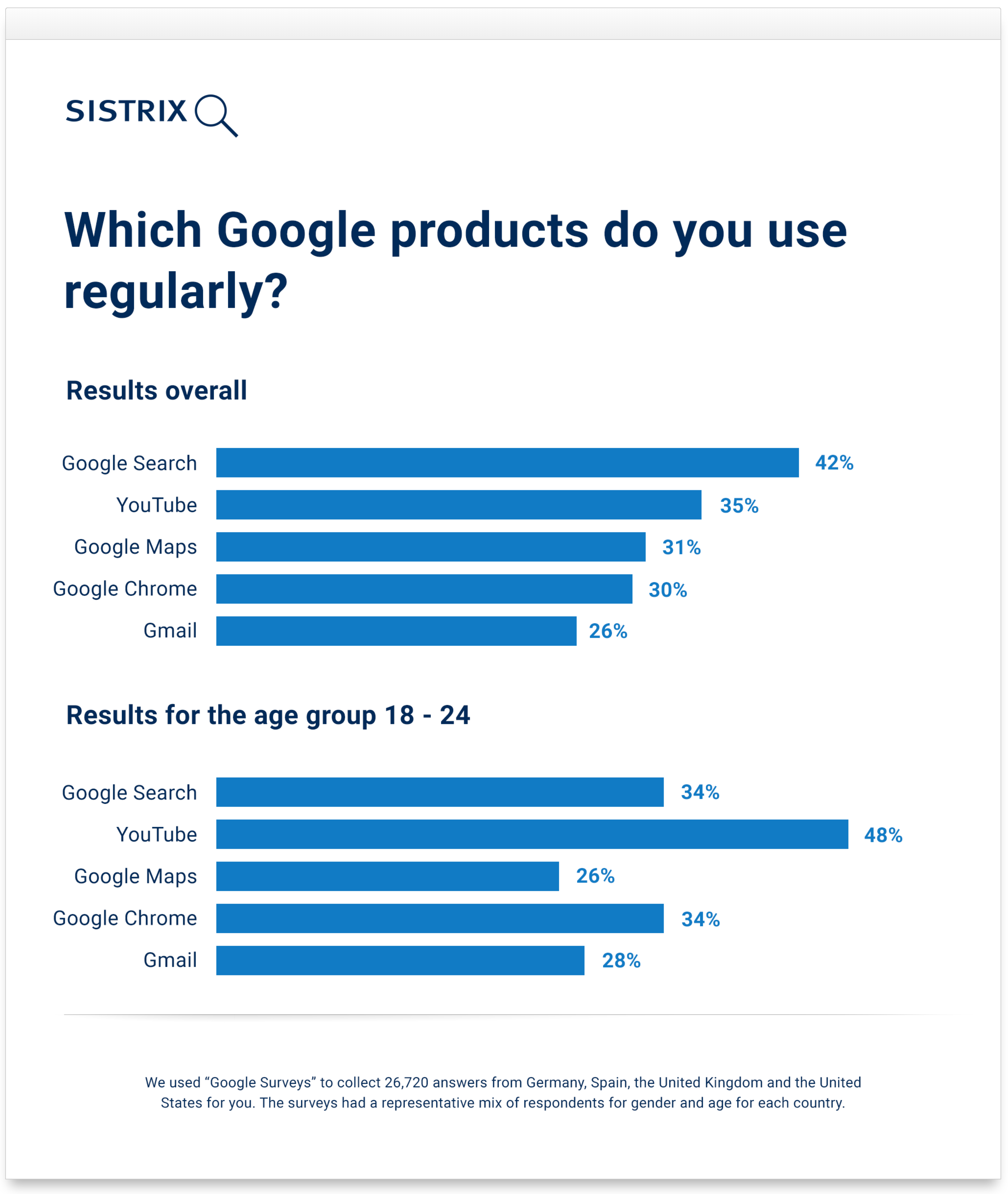
Day 4: If you were forced to quit using the products and services of one of these four companies, which one would you give up first?
Apple, Google, Microsoft, Facebook and Amazon are the big five tech giants, with a combined net-worth of more than $3 trillion. Well, we wanted to know which of these companies our participants consider to be essential in their life? (We do leave Microsoft off this question because their business model).
The results show nicely that living without Google is hard to imagine for many of our participants, while Amazon is more or less replaceable and Facebook as well as Apple are even expendable.
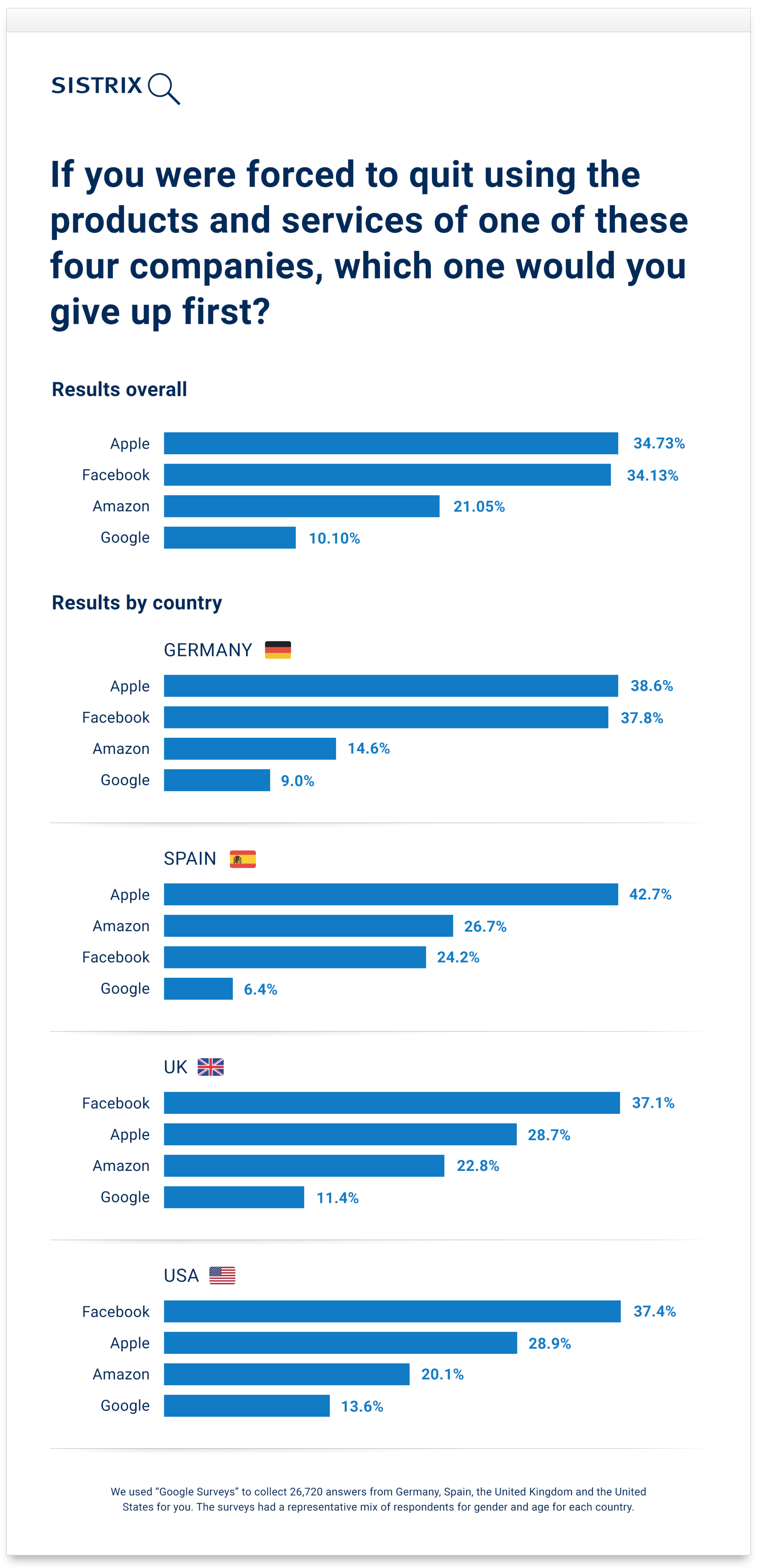
Day 3: How do you decide on which result to click in a web search?
Our third question of this series was not a multiple choice question, again, just like yesterday. We wanted the participants to tell us how they decide, which result they click on in a web search. The answer was a free form text, so we received a lot of different answers that we grouped into 4 different categories:
Snippets, which includes answers like these: I read the description below, brief clear headline, best description, by reading the short snippet taken from the site, clearest description of content, etc.
Position: first one, top, at the top, top three
Reputation: names I know, known company, a familiar trusted site, reputable website, used before, etc.
Avoiding Ads: ignoring the adverts at the top, one without the word ad, first one that isn’t a paid for ad, non ad sites, etc.
The rest of the answers are from the group of people who either do not know, said they chose randomly or just gave humoristic answers like this one, from the UK: “I apply a self composed logarithm to determine which result will optimise my knowledge on the subject under interrogation.”
In summary: Even with all the new things and SEO strategies we hear about, it is essential to keep in mind the SEO basics, like snippet optimisation. Users do pay attention to the search result snippets before they click on a resullt. This is why the best practice examples in Google’s SEO Starter Guide are so important.
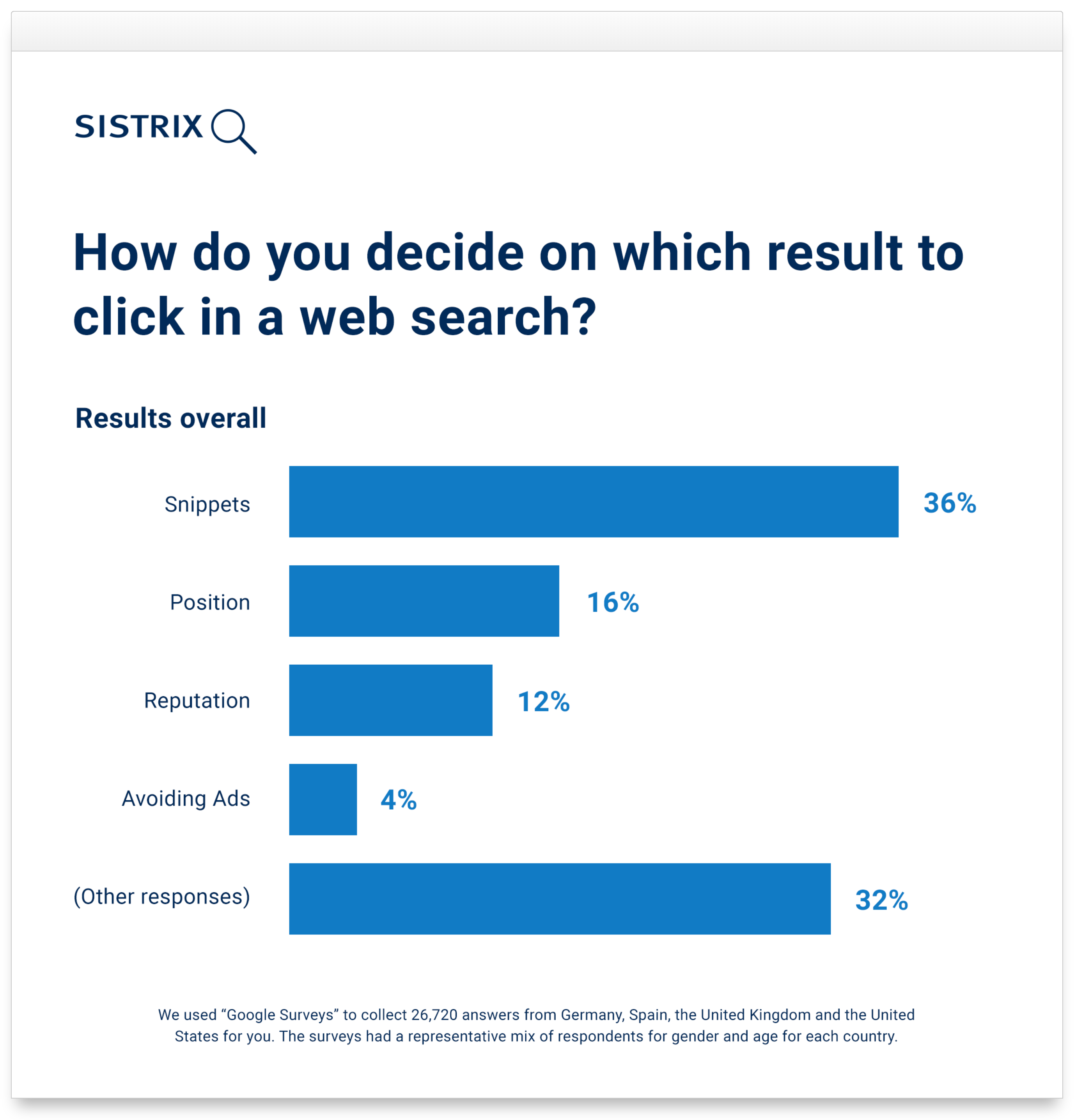
Another interesting aspect that showed up was that, even though we did not explicitly ask for it, 4% of participants said they avoid Ads. This begs the question of how the results would have looked if we had asked this question?
Day 2: Which search engine do you use the most on the internet?
The second question of this series is not a multiple choice question. We wanted the participants to tell us which search engine they use. The answer was a free form text, so they had to first reflect on what they are using.
It seems that many respondents in all these countries do not differentiate between a search engine (like Google) and a browser (like Safari, Firefox, etc). When we take the default search engines for each browser into account, we find that more than 85% of participants in each country use Google.
It is also interesting to note that the British considered the question most seriously, with only 6,3% of the answers being joking or nonsensical. The Germans on the other hand were the most enlightened when it came to differentiate between a browser and a search engine (aside from a few Apple users).
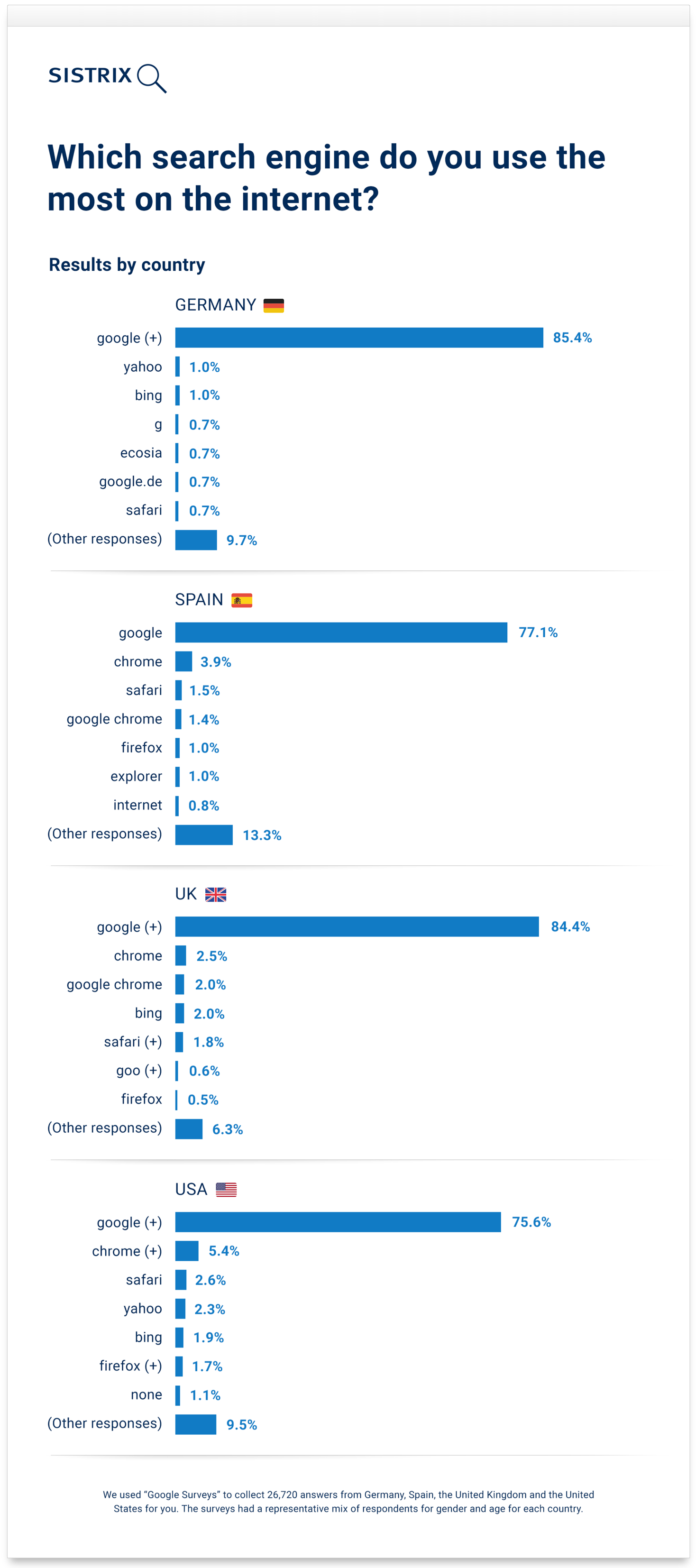
Day 1: Do you associate rather positive or rather negative traits with Google?
When we take a look at the media coverage of Google, both online and offline, it might seem that, overall, there is a latently negative sentiment against Google. This especially holds true for any story about machine learning or artificial intelligence at Google, which always seem to end in the activation of Skynet. We wanted to know if that is really the case and therefore asked our representative sample:
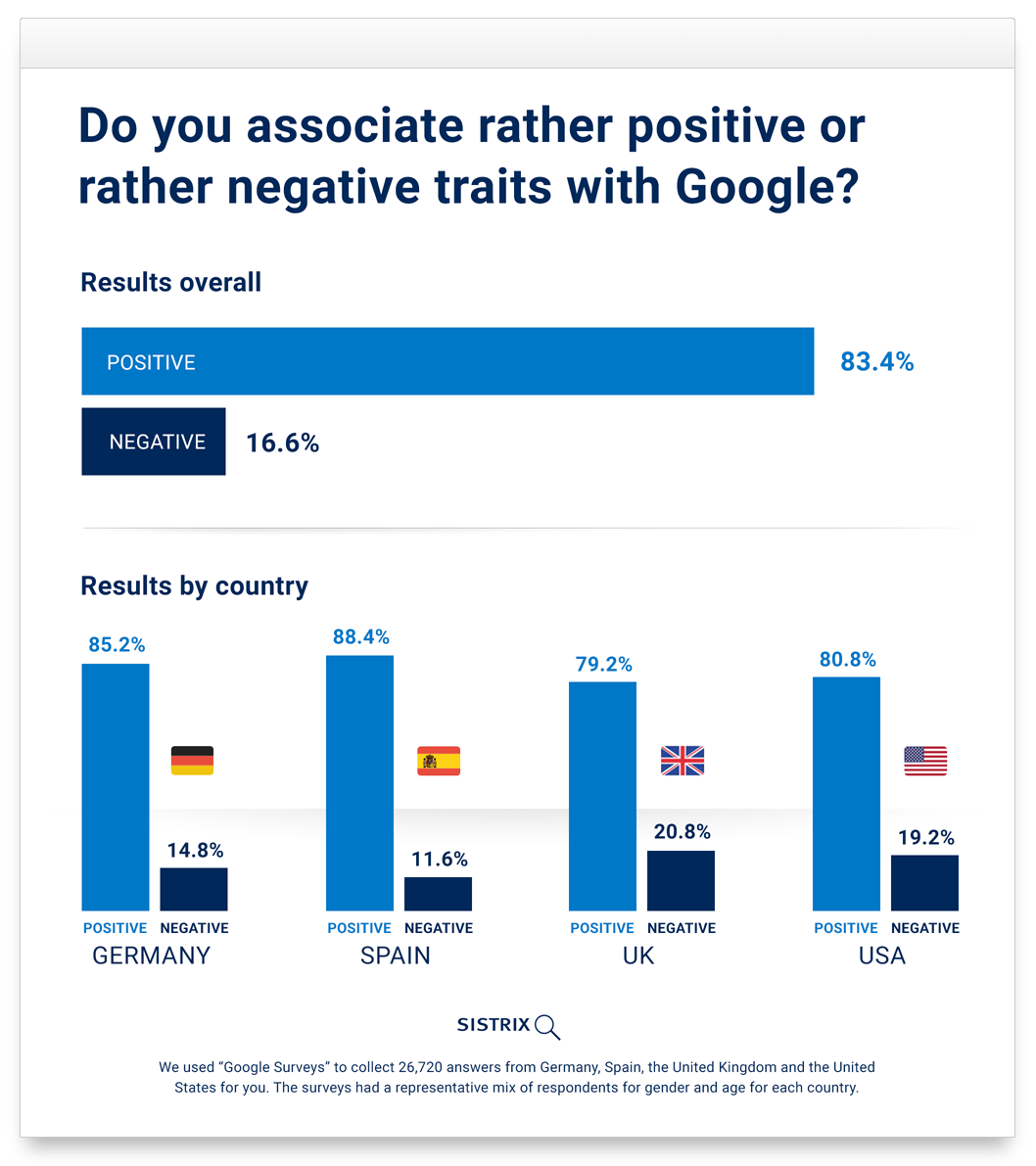
The surprising result: the larger part of survey participants associate positive traits with Google. What was even more surprising is that the age groups of 18 – 24 show the most positive sentiments in Germany and United States while, in the UK, the group of 65+ had the most positive responses and in Spain it was the group of 45 – 54 year olds.
Have a nice and successful day and keep in mind Edwards Deming’s famous quote: “in God we trust, all other must bring data”.
